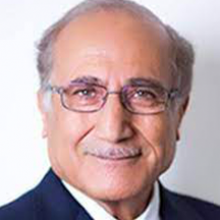You are here
Too Arab to forsake brothers
Apr 25,2016 - Last updated at Apr 25,2016
Judging from both US President Barack Obama’s and the heads of the GCC countries’ positions, one can say that the consensus they reached was not on real issues they have.
The summit meeting in Riyadh last week was preceded and also coincided with some “amusing” events. When King Salman of Saudi Arabia was visiting Egypt, his son and the second heir-apparent was visiting His Majesty King Abdullah in Aqaba.
When King Mohammad VI of Morocco was attending the Riyadh summit as a guest of honour, our Prime Minister Abdullah Ensour was holding bilateral relations with his Moroccan counterpart in Rabat, where both affirmed the need to bolster economic, human and educational relations.
King Abdullah did not attend the Istanbul conference of Islamic countries, while the Iranian president and King Salman did.
That conference culminated into an anti-Iran declaration.
The Riyadh conference was not very critical of Iran, as one may deduce from the statements made by Obama and the Saudi foreign minister.
Instead, the lame-duck American president promised to protect the Gulf states in case they were attacked by Iran, a very unlikely event.
Jordan is a country that has strong relations with both the Gulf states and the United States. For Jordan, under the current circumstances, to take a skewed position is an act of political misjudgement, to say the least.
If the US president is willing to travel all the way to allay the Gulf fears that the US is abandoning them to appease Iran, one expects Jordan’s Gulf brothers to appreciate Jordan’s dilemma.
The US president came to tell our Gulf brothers that his country is not willing to forgo its relations with the Islamic republic just to sooth the Gulf’s apprehension.
After the departure of Prince Mohammad Ibn Salman from Aqaba, the prime minister of Iraq called King Abdullah, reassuring him of resumption of trade and promising to go through with the Basra-Aqaba oil and gas pipelines.
Jordan has shouldered much more than its fair share of burdens in the last five years.
It has coped with complex, inherently contradictory, situations since the eruption of the Arab Spring in 2010. It proved to be steadfast, resilient and wise.
It is also a reliable friend.
The last thing Jordan needs now is for its friends and allies to play with it zero-sum games.
Sanctioning Jordan has failed despite the heavy financial losses in the years 1990-91. Now we have friends all over the world, and our Gulf brothers rely on them for their own protection against Iranian hegemony.
For the Gulf states, Jordan is too big to fall, succumb or tremble. But Jordan is also too much of an Arab to want to forsake its brothers.
The writer, a former Royal Court chief and deputy prime minister, is a member of Senate. He contributed this article to The Jordan Times.












